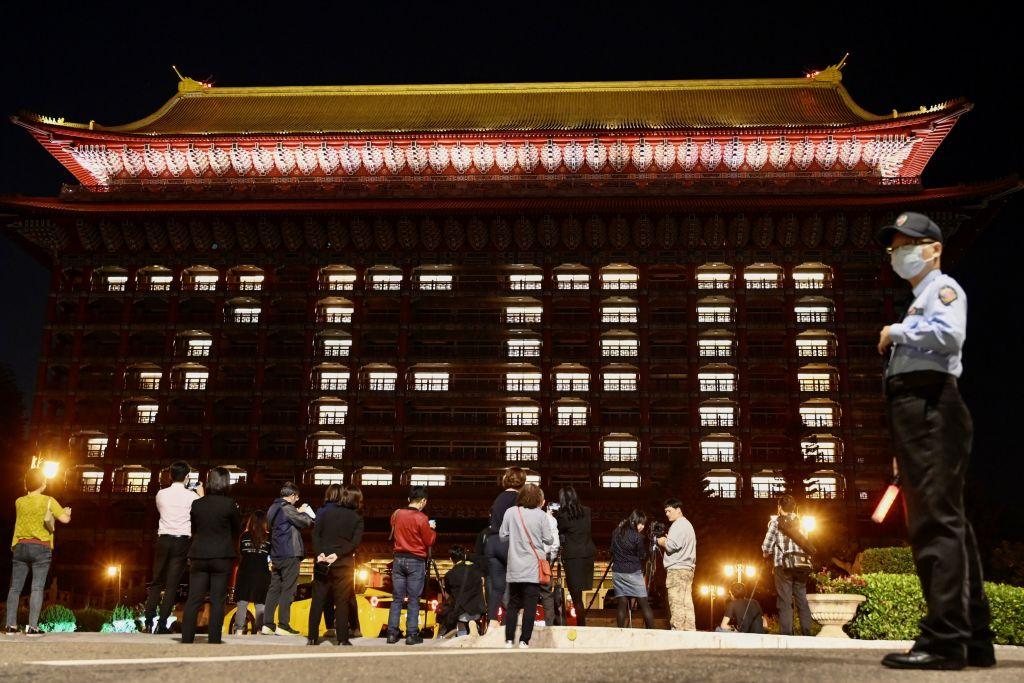
This week is the second meeting of the World Health Assembly (WHA) for 2020 and the second time this year that Taiwan has been excluded. High-level public diplomatic support for Taiwan to attend was provided by the US, Europe, the UK, Australia and many others, including a direct request from Washington and a statement by more than 600 of the 705 members of the European parliament. However, the World Health Organization did not accede.
Taiwan isn’t recognised as a state by the United Nations and is therefore not eligible to be a WHO member. However, the organisation’s representative forum, the WHA, has invited a number of non-UN states and organisations—including the Vatican, the Palestinian Authority and the International Federation of Red Cross and Red Crescent Societies—to attend its meetings as observers.
Achieving observer status at the WHA has been a clear policy goal for Taiwan since the late 1990s. It’s part of a broad push by Taipei to gain access to international forums in order to counter Beijing’s efforts to isolate it diplomatically.
Under its ‘One China’ principle, Beijing considers Taiwan to be part of China, and on that basis argues that it should be excluded. However, Beijing has also shown a degree of flexibility in the past. Taiwan did have WHA observer status from 2009 to 2015, when the Kuomintang government of President Ma Ying-jeou was in power. But that ended abruptly in 2016 when the Democratic Progressive Party led by President Tsai Ing-wen was elected.
This points to the complex vectors of China’s politics and history that are interposed between the specific issue of the WHA and the tactics that Taipei and Beijing use to pursue their interests, and, especially for Beijing, their ideological commitments.
Since the 1920s, the Chinese Communist Party and the KMT have had an intertwined history, which Taipei and Beijing mobilised in cross-strait relations in the Ma period from 2008 to 2016, culminating in the meeting in Singapore between Ma and Xi Jinping in November 2015. Its shared history with the KMT serves to validate the CCP’s worldview as being the architect of modern China. The DPP, however, has a different historical and political genealogy reaching back to Taiwan’s Japanese colonial history (1895–1945) and emphasising Taiwanese national self-determination. In the hard politics of the Xi era, the DPP’s platform is wholly unacceptable to Beijing.
While these themes are longstanding, the Covid-19 pandemic has highlighted and complicated the entire issue of Taiwan’s WHA representation. Taiwan’s response to the pandemic has been the best in the world, an exemplary demonstration of public health policy, the deployment of new technology, and the calibrated use of the power of the state in a democracy. Taipei has also sought to use this to raise its international standing and expand its international presence. It has been very effective, with many countries around the world acknowledging Taiwan’s successful handling of the crisis.
This has, however, brought it into conflict with the WHO and illuminated the effects China has had on the international system. Especially earlier in the year, there were discomfiting statements from senior WHO officials on Taiwan’s role in the global response to Covid-19. That Taiwan continues to be excluded from the WHA despite its leading example highlights how international organisations and some members states have taken on Beijing’s preoccupations as their own.
Taipei has regretfully accepted its exclusion from the WHA meeting this month. The government has made a number of statements under the ‘Taiwan can help’ slogan, emphasising its Covid-19 experiences and potential to lead. However, the DPP under Tsai has learned since the previous DPP presidency of Chen Shui-bian from 2000 to 2008 that discretion and discipline serve Taiwan’s interests and it will be pleased at the high level of international support it received for WHA participation nevertheless.
For the international community, the challenge will continue to be understanding that Taiwan’s exclusion from the international system is destabilising. It makes unpredictable actions by Taipei or Beijing more likely. Continuing to press for Taipei’s inclusion in the WHA and other organisations isn’t a question of taking sides in the emerging era of US–China strategic competition but of maintaining the integrity of the global system and mobilising the best responses to global crises.